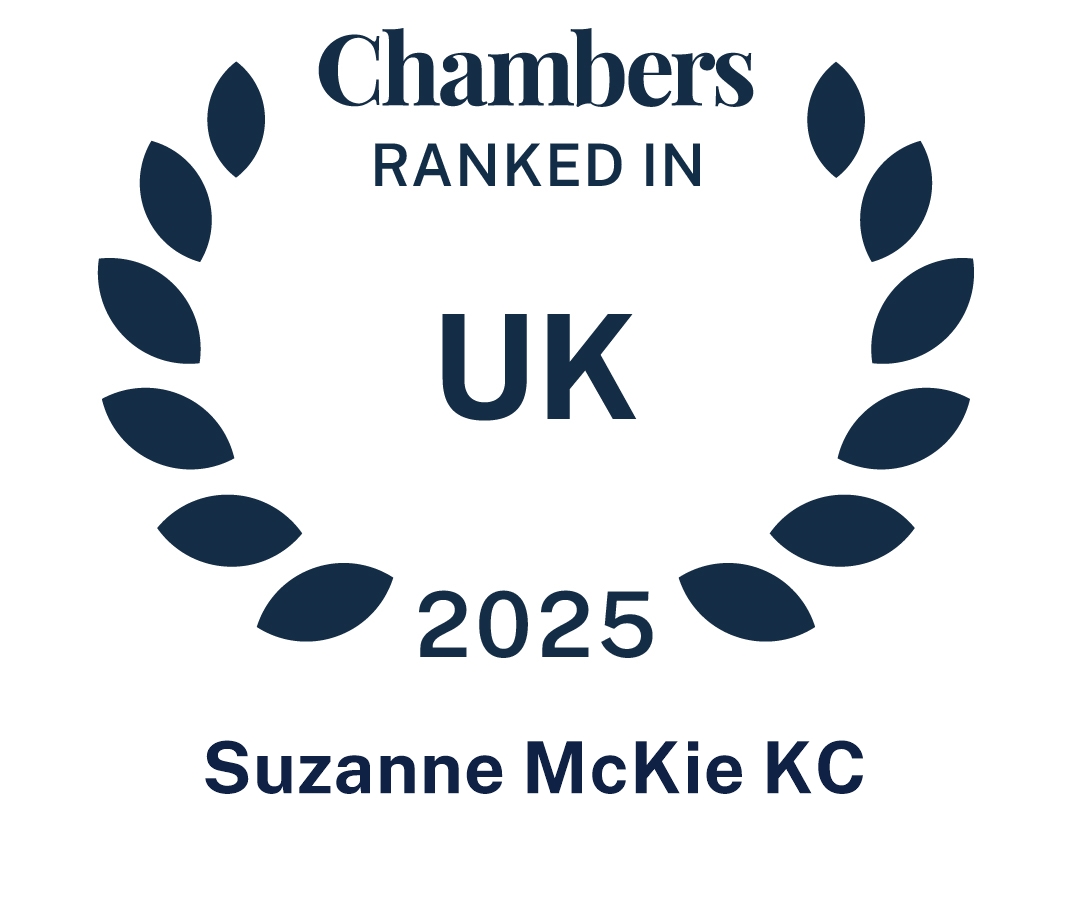27 November 2020
|Sexual Harassment
Professional Misconduct / Regulatory
Sexual Misconduct / Harassment
Sexual misconduct decision against ex-Freshfields partner quashed by the High Court
The High Court has quashed the decision of the Solicitors Disciplinary Tribunal to fine Ryan Beckwith, a former partner at Magic Circle firm Freshfields Bruckhaus Deringer, over alleged sexual misconduct involving a junior colleague.
Background
In January 2020, following a 9-day hearing, the SDT found that Mr. Beckwith engaged in sexual activity with a junior colleague in breach of Principles 2 and 6 of the SRA Handbook 2011 (the applicable regulatory rules at the time, since replaced by the SRA Standards and Regulations). These Principles were as follows:
-
Principle 2: to act with integrity; and
-
Principle 6: to behave in a way that maintains the trust the public places in you and in the provision of legal services.
Detailed findings of fact were made by the SDT in coming to this conclusion, which included the point that Mr. Beckwith had purchased alcohol for the group and been out with the complainant and other colleagues after working hours to celebrate the complainant’s anticipated departure from Freshfields. Following this event, Mr. Beckwith and the complainant shared a taxi to the complainant’s address, at which there was a sexual encounter between both parties. Issues of consent were not raised by the complainant and at the time, the complainant had formally resigned from the firm. Both parties were also intoxicated at the time, and the SDT did not find that the complainant had been vulnerable as a result.
In coming to the conclusion that Mr. Beckwith had breached Principles 2 and 6, the SDT reasoned that Mr. Beckwith’s conduct affected the reputation of the legal profession as well as his own and that this was therefore a matter that invited scrutiny by the Solicitors Regulation Authority (SRA). The SDT held that such behaviour would attract public attention and that members of the public would not expect a solicitor to act as such – hence the breach of Principle 6. As regards Principle 2, it was found that, beyond reasonable doubt, Mr. Beckwith’s conduct had fallen below what was expected of him by members of the public and of the profession.
The SDT fined Mr. Beckwith £35,000, and ordered him to pay £200,000 in costs. Mr. Beckwith appealed this decision, not to dispute the findings of fact made by the SDT, but to contend that the SDT was wrong in deciding that his conduct amounted to a breach of Principle 2 or 6 (as well as its decision on costs).
The High Court’s decision
The SDT’s decision was quashed by the High Court.
“Professional misconduct”
As regards the “professional misconduct” of Mr. Beckwith, the High Court found that the extent to which the notion of “professional misconduct” plays any part in a regulatory scheme depends on the terms in which the scheme has been made, and that there is no universal principle in this regard. With respect to Mr. Beckwith’s case, the High Court found that the scope of regulation by the SRA and SDT must depend on the proper interpretation of the Handbook at the time. The Principles in that Handbook were not formulated by reference to any definition of “professional misconduct”. (This conclusion was reached in response to Mr. Beckwith’s argument that the notion of “professional misconduct” provided (1) a threshold requirement to weed out complaints concerning matters that are insufficiently serious to be the subject of regulatory sanctions; and (2) a boundary marking the limits to which a regulator may be involved in conduct that that occurs outside of the workplace or otherwise in the course of professional life.)
No breach of Principle 2
The High Court held that the SDT erred in finding a breach of Principle 2 (the requirement to act with integrity). The critical matter was that Mr. Beckwith’s conduct amounted to an abuse of his position of seniority or authority, and it was on this allegation that the SDE concluded that although Mr. Beckwith realised that this actions were inappropriate, there was no abuse of position. The High Court found that the SDT was correct to conclude this, but that it fell into error by categorising those events as a breach of Principle 2. This is because that the SDT found that Mr. Beckwith had not taken unfair advantage of the complainant, yet the SDT proceeded to state that he had “fallen below accepted standards” – on this premise, the High Court held that this was not a coherent statement:
“Whatever “standards” the [SDT] was referring to as ones which identified what, in the circumstances of this case, the obligation to act with integrity required, were not ones properly derived from the Handbook.”
Additionally, the High Court noted that its analysis was based on the need to define the content of the obligation to act with integrity by reference to the standards set out in the Handbook, and that confining the obligation in this way preserves the legitimacy of the regulatory process (by maintaining the connection between to act with integrity, and the rules derived from the Solicitors Act 1974. Importantly, the High Court confirmed that its approach in this case is not any form of permission to expand the scope of the obligation to act with integrity simply by making rules that extend ever further into personal life: “Rules made in exercise of the power at section 31 of the 1974 Act […] cannot extend beyond what is necessary to regulate professional conduct and fitness to practise and maintain discipline within the profession.”
No breach of Principle 6
The High Court also found that there was no breach of Principle 6 (to behave in a way that maintains the trust the public places in you and in the provision of legal services).
The High Court stated that Principle 6 and 2 cover ground beyond that covered by the other Principles, in that in the context of Principle 2, the ground is identified by construing the contents of the Handbook – i.e. the body of rules made in exercise of the power at section 31 of the Solicitors Act 1974. Approaching Principle 2 in this way keeps it within foreseeable boundaries by attaching the obligation to act with integrity to matters that touch upon professional practise as a solicitor.
The Court considered that the same general approach also applied when determining the scope of Principle 6, which must also be closely informed by careful and realistic consideration of the standards set out in the 2011 Code of Conduct, lest it becomes “unruly”. The Court observed a difference between conduct “that does or may tend to undermine public trust in the solicitor’s profession” and conduct “that would be generally regarded as wrong, inappropriate or […] disgraceful”. Whether or not the line between these two kinds of conduct is crossed is a matter for the SDT from case to case, but where that line lies must depend on a proper understanding of the standards contained in the Handbook. The High Court found that the facts, as found by the SDT, are not capable of supporting a breach of Principle 6: what Mr. Beckwith did affected his own reputation, but there is a qualitative distinction between such conduct, and conduct that affects either his own reputation as a provider of legal services or the reputation of his profession. The High Court found that the SDT asserted that Mr. Beckwith’s behaviour crossed this line, but provided no explanation.
“ […] the [SDT] had already concluded that [Mr. Beckwith’s] conduct did not amount to an abuse of his seniority or authority […] that conclusion is a critical conclusion and, as we have already said, on the facts of this case it was a conclusion that was clearly correct. Conduct amounting to an abuse by a solicitor of his professional position is clearly capable of engaging Principle 6. But, as the [SDT] concluded, that was not this case.”
Article 8 (the right to respect for private life)
Mr. Beckwith made reference to Article 8 of the European Convention on Human Rights (ECHR) in his appeal, in that if regulatory rules such as Principles 2 and 6 reach widely enough to apply to conduct outside of the workplace and/or practice of a profession, one’s right to private life under Article 8 may be interfered with.
The High Court accepted that the SRA or SDT will need to adjudicate on a professional person’s private life from time to time as a matter of common sense, and condensed Mr. Beckwith’s submissions on this point into two significant matters:
-
Firstly, do the requirements imposed by Principle 2 and Principle 6 meet the minimum standard of legal certainty (which is one part of the Article 8(2) justification requirement)?
-
Secondly, what is the extent to which both Principles may reach into private life and is it consistent with the required fair balance between the public interest and private rights?
The High Court reviewed the Handbook’s Notes and Application Provisions to Principles 2 and 6 as part of its analysis and did not find that they settled the scope and reach of the Principles, primarily because these documents cannot trump the meaning (properly construed) of Principles 2 and 6. Consequently, the Court held that neither Principle has unfettered application across all aspects of a solicitor’s private life. As regards the requirement for legal certainty, the High Court found no reasonable scope for argument that either Principle failed to meet this standard, as the requirements of each Principle are to be determined by reference to the contents of the Handbook considered as a whole.
Interestingly, and importantly, the High Court confirmed that there can be no hard and fast rule towards either side of the spectrum – that either regulation under the Handbook may never be directed to the regulated person’s private life, or that any/every aspect of their private life is liable to scrutiny. However, Principle 2 and Principle 6 may reach into private life only when conduct that is part of a person’s private life realistically touches on their practise of the profession (Principle 2) or the standing of the profession (Principle 6). Such behaviour must, in a demonstrably relevant way, engage one or other of the standards of behaviour set out or implied by the Handbook. This strikes the requisite fair balance between the right to private life and the public interest in the regulation of the solicitor’s profession.
“Regulators will do well to recognise that it is all too easy to be dogmatic without knowing it; popular outcry is not proof that a particular set of events gives rise to any matter falling within a regulator’s remit.”
A point regarding the costs of this case
In setting aside the SDT’s costs order, the High Court described the amount claimed by the SRA in respect of the SDT proceedings as “alarming” given the lack of factual complexity and the disputes being of a relatively straightforward nature:
“We can see no basis on which the amount claimed by the SRA could provide any guide at all to what it would have been reasonable and proportionate for [Mr. Beckwith] to pay, even if the SRA had succeeded on its case in its entirety. Taking matters in the round, the [SDT’s] reasons for the costs order made […] are not coherent.”
For an overview of the issues surrounding sexual misconduct in the workplace, see Farore Law’s webinar presented by Suzanne McKie QC and Ruth Whittaker, which discusses the regulatory aspects of misconduct cases in the context of the SRA Principles.
• CLICK HERE TO WATCH THE WEBINAR •









